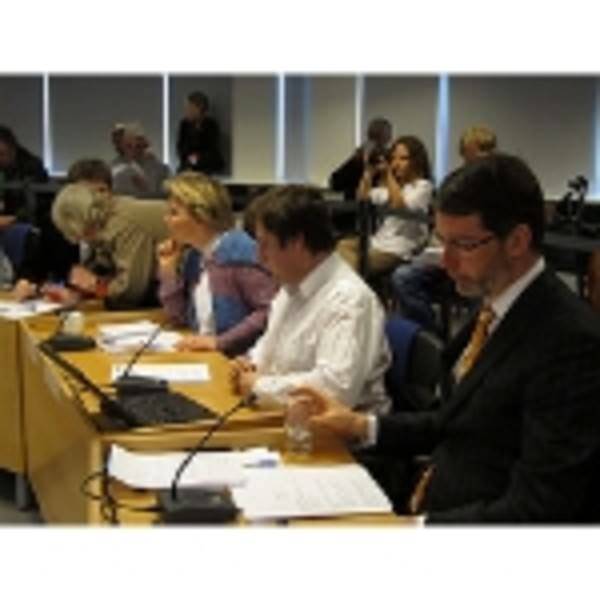In 2009, Iceland passed a privacy and free speech law to make itself into a haven for new media. Since then it has seen the eruptions of the Eyjafjallajökull and Grímsvötn volcanoes and one of the worst banking meltdowns of all time. But despite the dark times, Iceland has not lost its faith in the power of the social web.

The country is now crowdsourcing the writing of its new constitution.
From the Althing to the Latest Thing
As the Guardian points out, Iceland has retained the same constitution since its independence from Denmark in 1944. That document was copied wholesale from the Danish with a few cosmetic changes.
Iceland’s Constitutional Council has decided that involving the people in every aspect of creating a new guiding national document would best be done by leveraging social media tools in addition to an open meetings policy. Using a website, a Facebook page, a Twitter account, a YouTube channel and a Flickr account, the council is practicing a kind of openness that may seem unprecedented to the citizens of most countries.
But Icelanders are old hands at this sort of thing. Their parliament, the Alþingi, started in 930 C.E. with leaders from around the island gathering in the fields of Þingvellir to argue issues of import to the community. It is the oldest parliament in the world.
ReadWritePolitics
This does seem to be a real instance of read/write politics. In addition to posting versions of the new constitution online and giving people an opportunity to watch the council members debate and work, they are also soliciting feedback, both actively and, given the commenting function of the tools they are using, structurally.
It is far from guaranteed that this process will give Icelanders a sense of investment in, and responsibility for, the new constitution, and whether it protects against the kind of walled-off and disconnected government that allowed all the major Icelandic banks to fail. But, given the country’s needs, its recent history, its ancient history and its extraordinary level of online participation, it is surely worth a try.
The final draft will be presented to the people in a referendum.
Council photo via Stjórnlagaráð, video via Stjórnlagaráð | other sources: Zaq Mosher

















